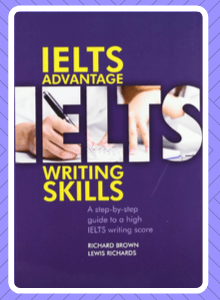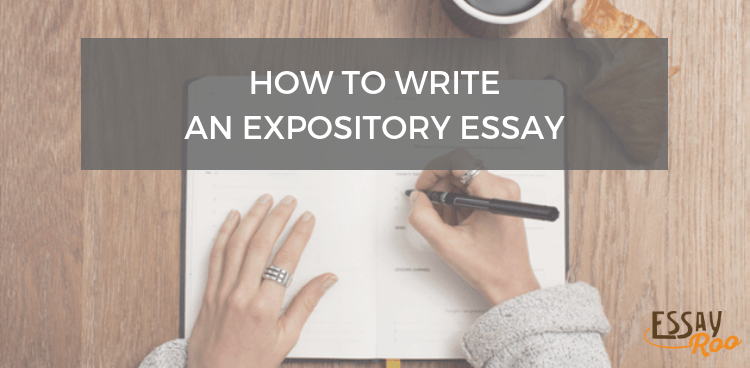
The units build on each other, so when you study opinion essays, for example, we advise you to study Unit 3 first, and then Unit 6.
- Vocabulary: A good command of academic vocabulary (including academic words, collocations,etc).
- Grammar: Accurate grammar and a rich variety of complex structures (for example conditionals, relative clauses, noun phrases).
- Ideas and arguments: Well-developed ideas which can answer the question fully and express a clear viewpoint.
- Organization: Clear, easy-to-follow & well-organized paragraphs.
In addition, the book contains grammar exercises in each unit, showing students how to apply a wide range of grammar items in their IELTS writing.
– Unit 7: shows you how to write about graphs with a trend (changes over time).
How to use this book ?

“IELTS Advantage: Writing Skills”: shows students how to organise and structure an answer for all types of task 1 and task 2 different questions.
IELTS examiners are looking for four different aspects in your essay, and the book is designed to help you in each of these areas:
“IELTS Advantage: Writing Skills pdf book” written by Richard Brown , Lewis Richards is a fully comprehensive resource designed for IELTS learners who want to achieve band 7.0 or higher in the Writing section of the Academic IELTS test.
Now, you can download IELTS Advantage writing skills pdf book from IELTS game or you can by it from Amazon.

Are you looking for a single solution to a series of exams? If yes then this course is for you. Introducing 'SSC Foundation 2020-21: A Course for all SSC exams' that will help you in preparing multiple exams at a time. This course will be useful for various exams such as SSC CGL, SSC CHSL, SSC CPO, SSC Stenographer and various other govt exams.
- Read Newspaper Daily
- Follow Magazines like Yojana
- Refer to PIB Articles Daily & stay updated about new govt. schemes
- Check Govt. Websites
Before diving into the study material first you should know about the topics that should be covered and source of your preparation for SSC Descriptive exam. Below are the important themes along with the generally asked topics in the SSC CGL Tier-III exam.
We advise to read from these sources daily and make your own study material. This process will help you with better framing of your essay.
Click here to enrol yourself in the course for maximum benefits - Start FREE Trial
The pen-and-paper exam aims to tests candidates ability to form opinions and arguments on certain topics. The SSC CGL Tier-III (Descriptive) exam also aims to evaluate your grammar and how you convey your ideas in a precise manner.
To cover these most-important topics for SSC CGL Tier-III Exam you should follow below-mentioned sources for your preparation and make your own SSC CGL Tier-III Descriptive Paper Study Material.
SSC CGL Tier-III Descriptive Paper Study Material PDF Download: The CGL (Combined Graduate Level) examination is conducted annually by the SSC which consists of four tiers i.e. Tier-I, Tier-II, Tier-III & Tier-IV exam. Every SSC CGL candidate knows that after qualifying Tier-I & Tier-II exam, he is eligible to appear for the Tier-III Exam which is a descriptive test. Descriptive Test is a pen-and-paper exam i.e. in offline mode where the candidates are asked to write an essay, letter, precis and sometimes applications.
- Social Issues like poverty, unemployment, child labour, women empowerment, education system, dowry system.
- Natural Disasters like Earthquake, Tsunami, Landslide, avalanche, etc.
- Financial & Economic Issues like GST, Demonetization, etc.
- World Politics like SAARC, BREXIT, America-China Trade War, Sanctions on Iran, etc.
- Environment issues like Pollution, Ozone Depletion, Paris Agreement, Swachh Bharat Abhiyan, etc.
- Science and Technology like Chandrayaan-2, Mangalyaan, etc.
- Government Schemes like Jan Dhan Yojana, Jan-Dhan Account Yojna, Ayushman Bharat, Ujjawal Yojna, etc.

IELTS examiners are looking for four different aspects in your essay, and the book is designed to help you in each of these areas:
“IELTS Advantage: Writing Skills pdf book” written by Richard Brown , Lewis Richards is a fully comprehensive resource designed for IELTS learners who want to achieve band 7.0 or higher in the Writing section of the Academic IELTS test.
It quickly develops students’ fluency and confidence in producing pieces of writing through focusing on academic vocabulary and collocations.
In addition, the book contains grammar exercises in each unit, showing students how to apply a wide range of grammar items in their IELTS writing.
Download all Cambridge IELTS books pdf+audio (1-16)

Students are guided step-by-step through the different tasks in the writing module, using material developed in the classroom, by authors with many years’ experience in helping hundreds of IELTS candidates achieve a high IELTS score.
Each unit is built around two texts: an introductory text, which includes useful grammar, ideas and vocabulary, and a model essay , which guides you as you write.
practice grammar rules to your writing. The grammar items are selected thoroughly to be the most useful and relevant to the IELTS Writing test.
Now, you can download the book for free with a direct link on Google drive on ieltsgame.com.

As you think about your topic, consider making a graphic organizer to get your thoughts in order. This can be as simple as a brainstorming session with yourself, a concept map, or a Venn diagram, all the way up to extremely detailed statistical maps with studies you’ve carried out yourself.
“Write an expository essay for your homework.” There’s a sentence which strikes fear into the heart of many a student in Australia, whether they are in high school, or in university.
Comparison: Compare and contrast life in Australia with life in America. Compare and contrast your own upbringing with that of your parents. Compare and contrast your high school with a high school in the UK.
Descriptive: Describe what it’s like to visit Uluru / Ayers Rock. Describe your best friend. Describe the last concert you went to.
Structure and format of the expository essay
But don’t freak out if you’re one of them! Help is here. I’ll show you what an expository essay is, then the rubric you need to know to write a good essay from introduction to conclusion. By the time you finish reading this article, you’ll have all the tools you need for how to structure an expository essay, some prompts giving you clues for how to start, a guide to the types of expository essays, and a few tips to make your life easier along the way.
Thesis: If you want to mine crypto-currency, the process is easier than you might think.
Your body should consist of at least three paragraphs. Some ideas for how to format these include three different takes or views on the situation, three opposing points of view, two opposite sides and one side which takes elements of both, three steps to solve a problem, three stages of a journey, and so on. Of course, it need not be just three points, but three is your minimum.
When considering how to structure an expository essay, you may wish to take out a pen and paper and do an outline straight off the bat. This will help to keep you on the right path and give you a template that will show you how to start.

Now that you’ve managed to finish your first draft, take a moment to congratulate yourself! And then, get back to work because you still have a lot to do.
The work that you’ve already done has probably given you tons of exciting ideas. Your task at this stage is to organize these ideas logically in an outline format. Think of the key points that support your thesis and use them as subheadings for the body paragraphs of your paper.
At this stage, you need to make sure that that the format of your academic paper meets the correct style requirements. Pay special attention to citations.
Reviews are usually short and rarely exceed 1000 words in academic journals and newspapers. The structure of a book review often resembles that of other academic papers, featuring typical elements like an introduction, a thesis statement, body paragraphs, and a conclusion.
📅 Step 6. Plan Your Paper

Unlike literature, a movie includes audiovisual elements. However, literature and film do have many similarities. Both use characters, dialogues, plots, settings, symbolism, etc. These features can be analyzed for their intent and effect in both cinema and literature.
This step is not always necessary. Still, if you need empirical evidence to prove your thesis, you’ll have to spend time collecting it. Scholars conduct their research in different ways, so this stage is flexible according to your specific topic. If you have any questions about gathering empirical evidence, you can always consult your professor.
Next, your reader might want to know if the claims you make are valid in all cases. “How” is the corresponding question here. How will another perspective, a new set of materials, or different sources affect the claim you make? A typical academic essay usually contains at least one “how” section.
To write a paper, you need to choose a hot topic and formulate a research question. Then read your sources and get some empirical evidence if necessary. Then make a plan of your paper and write the first draft of it. Take your time to revise and edit the draft. And, finally, don’t forget about the formatting!
